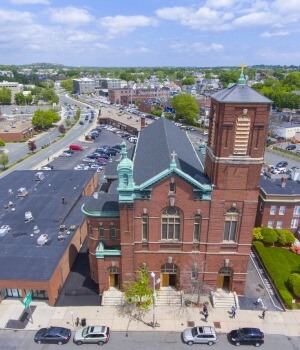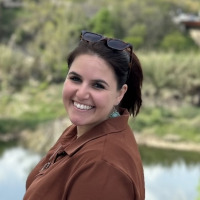Drug and Alcohol Statistics in Malden
Alcohol, opiates, stimulants, sedatives, and many other substances are impacting the lives of Malden teens and adults. For example, there were 190 opioid-related Emergency Medical Service calls in 2021 involving people of all ages.2
For every 100,000 Malden residents, there are:2
Malden schools are dealing with the impact of substance misuse on their students. The results of a recent behavioral risk survey found that:2
40% of high school students have consumed alcohol in their lifetime
13% of high school students drank alcohol in the last month
22% of high school students smoked marijuana in their lifetime
10% of high school students smoked marijuana in the previous month
There are benefits to entering a drug and alcohol rehab in Malden. For example, it may offer services that can help you detox with medication to ease withdrawal symptoms in inpatient and outpatient programs. Many services at different rehabs are also easily accessible.
Levels of Substance Abuse Care
Several levels of care are available for addiction treatment, based on types of needs.
Alcohol and Drug Detoxification
Detox occurs under medical supervision at a hospital, residential, or outpatient facility. It is the process of safely and comfortably removing drugs or alcohol from your system. Once detox is complete, you can transition to the next step of treatment.
Inpatient Drug and Alcohol Rehab
Inpatient or residential treatment involves staying at the rehab facility to receive 24/7 supervised care. Treatment interventions in this setting typically include individual and group therapy, recreational therapy, nutritional counseling, and medication.
Partial hospitalization programs (PHPs)
Massachusetts residents who participate in a PHP live at home while receiving treatment services at a hospital. Treatment often includes many of the same methods as inpatient care, but you return home during non-treatment hours.
Intensive Outpatient Programs (IOPs)
IOPs allow Massachusetts residents to attend counseling sessions several days a week while spending the rest of their time at home, at work, or fulfilling other obligations.
Standard Outpatient
Standard outpatient care is the least intensive treatment option. It involves one to two hours of treatment per week. Highly motivated people with a strong support system are good candidates for this level of treatment.
Relapse Prevention
Also called aftercare, relapse prevention is for Massachusetts residents who have completed a rehab program. It includes ongoing support such as 12-step groups, SMART recovery, and therapy.
How to Pay for Substance Addiction Treatment in Malden, Massachusetts
Private Insurance
Every insurance provider is required by law to cover substance misuse and mental health treatment services to some extent. Contact your provider to learn about the specific coverage they offer, which varies by company.
Massachusetts Medicaid
In Massachusetts, Medicaid and the Children’s Health Insurance Program (CHIP) are rolled into one program, called MassHealth. MassHealth members may be able to cover the cost of rehabilitation treatment services through this government-funded program. Massachusetts residents must apply for benefits, and the treatment provider must accept MassHealth as a method of payment.
Massachusetts Medicare
Massachusetts Medicare is a program funded by the government to provide coverage for Massachusetts residents who are 65 or older, have been on Social Security Disability Insurance for two years, or have end-stage renal disease or Lou Gehrig’s disease. Medicare covers the cost of addiction treatment services; however, some rehab facilities don’t accept Medicare methods of payment, so always check before enrolling in treatment.
Sliding Scale Rehabs
Sliding scale rehab programs charge fees based on income, so you only pay what you can reasonably afford. To qualify for sliding scale rehab in Massachusetts, you may have to provide proof of income.
TRICARE in Massachusetts
Massachusetts TRICARE (North region) is a program funded by the government to provide health insurance coverage for military personnel, veterans, and their families. TRICARE covers addiction treatment services for these individuals.
IHS-Funded Drug Rehabs
Indian Health Services drug rehabs offer addiction treatment free of charge for Indigenous people and Alaskan Natives. This coverage is provided even if other insurance is available.
Traveling to and Within Malden
 Flying, driving, and riding the various transportation options make getting to a Malden drug rehab simple and convenient. The closest airport, Logan International Airport in Boston, is just five miles away.3 A little further out are smaller airports, but they are less than an hour’s commute, like Manchester and Portsmouth International airports.
Flying, driving, and riding the various transportation options make getting to a Malden drug rehab simple and convenient. The closest airport, Logan International Airport in Boston, is just five miles away.3 A little further out are smaller airports, but they are less than an hour’s commute, like Manchester and Portsmouth International airports.
Getting Around Town
Traveling from the airport and around Malden can be done using free services or hiring transportation. The following are used daily by residents and non-residents:4
- Massachusetts Bay Transit Authority (MBTA)
- Logan Express Bus
- Ride-share Apps Uber and Lyft
- Water ferry or taxi
- Taxicab
- Shuttle buses
- Limousines
- Rental cars
Where to Stay
Housing arrangements, such as AirBnB, VRBO, hotels, motels, campgrounds, and RV parks, are in the following Malden neighborhoods:5
- Bellrock
- Edgeworth
- Faulkner
- Ferryway
- Forestdale
- Linden
- Maplewood
- Oak Grove
- West End
Things to Do in Recovery
Alcohol and drug rehabs in Malden assist in creating addiction recovery plans that include activities to support recovery, make you laugh, have healing effects, or teach you something new. A few Malden examples include:6
- Boda Borg, a real-life gaming experience, can help restore mental and physical abilities.
- Middlesex Fells Reservation is a place to enjoy nature, hike, bike, and relax.
- Sky Zone, Metro Rock Climbing Center, and Revolution Axe Throwing can boost endorphins.
- AA and NA groups help with accountability and offer peer support to those in recovery.
Massachusetts Alcohol and Drug Laws
Policy makers in Massachusetts have enacted the following laws related to alcohol and drug use and possession:1,2,3,4,5
9-1-1 Good Samaritan Law: Passed in Massachusetts in 2012, this law states that anyone who calls 9-1-1 for an overdose emergency will not be charged with possession of a controlled substance. The policy was created to encourage people to get emergency help during overdose situations.
Naloxone Standing Order: The Massachusetts Act for Prevention and Access to Appropriate Care and Treatment of Addiction allows pharmacies to dispense Naloxone without a prescription, to anyone at risk of opioid overdose and to others who are in a position to assist those at risk.
Marijuana Decriminalization: As of 2016, recreational use of marijuana is legal in Massachusetts for adults 21 years and older. Adults can have up to one ounce on their person and 10 ounces in their home, but any amount over one ounce must be kept locked up, and marijuana cannot be used in public or on federal property. Residents of Massachusetts can also grow up to six cannabis plants for single-adult households or 12 plants for larger households.
Zero Tolerance Law: In Massachusetts, the legal BAC for drivers under 21 years of age is 0.02% instead of 0.08%. Violation of this law can result in up to three years of license suspension, 2.5 years in prison, up to $5,000 in fines, and a suspended license.
Drug Classes: To establish criminal penalties for violation of drug law, Massachusetts has established five classes of controlled substances. Class A includes opioids. Class B includes cocaine. Class C includes some narcotics. Class D includes marijuana. Class E includes narcotics that contain additional substances.
Resources
- Commonwealth of Massachusetts. 2022. Current Opioid Statistics.
- Everett / Malden Collaborative for Community Health Improvement. 2021. Community Health Needs Assessment.
- Massachusetts Port Authority. 2022. Boston Logan International Airport.
- Logan International Airport. 2022. Transportation Routes To and From the Airport.
- Malden Massachusetts. 2022. Malden’s Neighborhoods. 213A
- My Area Network 781. 2022. Explore Malden.



